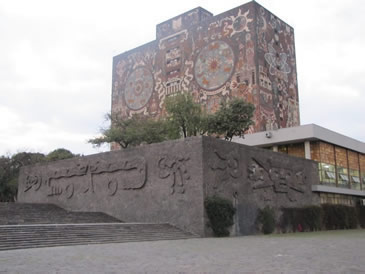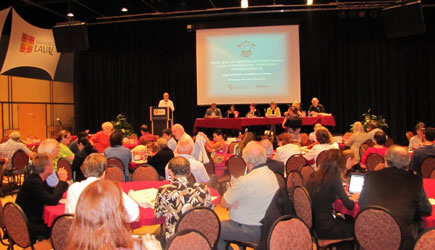Wayne Ross and Sandra Mathison will be keynote speakers.
Check the website for more information.
Action Canada public dialogue taking place Friday, November 30th, from 8:00am to 9:30am. Moderated by Tom Clark (Chief Political Correspondent and Host of Global TV ‘s The West Block), the theme we will be exploring is:
Focusing on British Columbia’s K-12 education systems, our guest speakers for this session include Peter Cowley (Senior Vice-President Operations and Director of School Performance Studies, The Fraser Institute), April Lowe (Grade 3 Teacher, Garibaldi Highlands Elementary School), and Joel Westheimer (University Research Chair, Sociology of Education, University of Ottawa).
This event will take place in the Asia Pacific Hall of Vancouver’s Morris J. Wosk Centre for Dialogue (580 West Hastings Street). Following this session will be two more dialogues hosted by other Action Canada Task Forces: “Teaching Questions Not Answers” (at 9:30am) and “Who Cares about Young Caregivers (at 11:00am).
This event is free, but registration is required: Vancouver Public Dialogue
Please do not hesitate to contact me if you have any questions.
-Sébastien Després and the Action Canada Task Force on Standardized Testing
Saturday, December 1
10 am to 12:30 pm–coffee from 9:30
Simon Fraser University Surrey Campus (Surrey Central Sky Train)
250 – 13450 – 102nd Avenue
The Great Schools Project is a collaboration among individuals who want to strengthen and protect public education in British Columbia. For almost four years, educators, parents, researchers, and leaders, both inside and outside the education system, have met to discuss how to improve the way we evaluate and assess our schools.
We feel the current system is both too narrow (focused on only a portion of the important work schools do) and too punitive (with substantial negative impact on individual students and educators).
After extensive discussions of the current system of Foundation Skills Assessment (FSAs) and their use to rank schools, the GSP working group has developed ideas about alternatives that would better serve both students and public schools.
The Great Schools Teach-In provides an opportunity for us to present some of these ideas and for you to debate them and provide your input.
Program:
Please RSVP to: dlaitsch@sfu.ca
For more information see our website: Great Schools Project
Great Schools Project Working Committee
Posted in BC Education, Conferences
Tagged Canada, conferences, K-12 issues, Research
Via Michael Zweig at SUNY Stony Brook:
Dear Friends and Colleagues
The How Class Works – 2012 conference, held at Stony Brook University June 6-9, was by all reports a success. There were over 180 presentations in 50 sessions, with 240 people attending. The conference welcomed presentations from across the United States and fifteen other countries – graduate students and senior scholars in many fields of study; labor and community activists; independent scholars, artists, and poets–all exploring one or another aspect of working class studies.
A number of papers presented at the conference are now available on the conference Website. Go to:
http://www.stonybrook.edu/workingclass/conference/2012/papers.shtml
We will add more papers as we receive them and post audio recordings of many sessions this coming fall.
Meanwhile, I am happy to report that the University has posted to YouTube videos for four of the plenary sessions at the conference, listed below with the link for each (the number corresponds to the session number on the conference program). These are each important documents with significant content and I invite you to view them.
4.0 Corporations Are Not People: Responding to the Supreme Court in Citizens United
Jeffrey Clements
How Class Works – 2012 conference opening plenary session and Stony Brook University Provost Lecture, Thursday evening, June 7, 2012
http://youtu.be/Lyvlh4q8htw
5.0 May Day in New York City: Occupy, Labor, and Community
with Penny Lewis, Teresa Gutierrez, Thisanjali Gangoda, and Amy Muldoon
How Class Works – 2012 conference plenary session, Friday morning June 8, 2012
http://youtu.be/FpEFw3DRTS4
9.0 Awards at Conference Banquet
Working Class Studies Association – to Franco Barchiesi (best book), Steven Brier (best article), and Jamie McCallum (best dissertation) in 2011
Center for Study of Working Class Life – Award for Lifetime Contributions to Social Justice for Working People, to Stanley Aronowitz and Dennis Serrette
Friday evening June 8, 2012
http://youtu.be/D6hZ-RcIQMA
11.0 The U.S. in 2012: What’s Class Got to Do with It? A Roundtable Discussion
with Bill Fletcher, Jr., Juan Gonzalez, Bob Herbert, Frances Fox Piven, and Michael Zweig
How Class Works – 2012 conference plenary session, Saturday morning June 9, 2012
http://youtu.be/TpFHqMYOTZQ
We have reserved space at Stony Brook for the How Class Works – 2014 conference, June 4-7, 2014. The first call for presentations will go out in the spring of 2013.
with best wishes
Mike
Michael Zweig
Director, Center for Study of Working Class Life
Department of Economics
State University of New York
Critical Education will be a partner journal with the VI Congress of the Mediterranean Society of Comparative Education, which will be held Hammame, Tunisia October 1-3, 2012.
For more information about the conference visit the website or contact:
Jelmam Yassine Ph.D
Assistant Professor
National Engineering School of Tunis
GSM : 00 216 98202093
Skype : jelmam.yassine
Mail : yassine.jelmam@yahoo.fr
Hrairi Sameh – GSM : 00 216 98656444
COCAL X Conference in Mexico City
August 9-12, 2012
The tenth annual COCAL Conference will be held in Mexico City, on the campus of the National Autonomous University of Mexico from Thursday, August 9 through Sunday, August 12, 2010.
The host for COCAL X is the Sindicato de Trabajadores de la Universidad Nacional Autónoma de México (STUNAM). Contingent faculty activists and representatives from North America will participate in the conference. Presentations and plenaries will be translated into English, French, and Spanish.

UNAM
(Photo by David Milroy)
Mexico City is about a five hour flight from Washington, D.C.; four hours from Chicago, and three and a half hours from Los Angeles. The conference arrangements include a group hotel and bus transportation to and from sessions.
We are requesting submissions for presentations at the COCAL X Conference. The deadline is June 15, 2012. Click here for guidelines for submissions.
Click here for online registration
Click here for a mail-in registration form
Below is information about registration and accommodations for planning purposes:
Conference registration fee includes:
Optional tour: Thursday, August 9th visit to Pyramids of Teotihuacan, $50
Click here for an application to the scholarship fund
Plenaries and workshop topics

Plenary at COCAL IX
(Photo by David Milroy)
Plenary 1: Changes in academic work in the context of neoliberal globalization
1. Teaching, researching, and disseminating knowledge to the larger community, including academic management of e-learning
2. Gaining and maintaining health, unemployment, and retirement benefits
3. Supporting academic improvement, evaluation processes, and recognition
Plenary 2: Organization and new forms of struggle by academic workers; challenges and strategies for the 21st century
4. Forming and building unions, associations, federations, networks and coalitions
5. Expanding employment rights: hiring, retention, tenure, wages, health benefits, and safety
6. Strengthening union rights: institutional recognition, alliances and federations, collective bargaining rights, and labor laws and regulations
7. Supporting political rights, cultural rights, and academic freedom
8. Exploring forms of struggle and achievements: campaigns, negotiations, demonstrations, work stoppages, strikes, and use of new technologies and social media
Plenary 3: Culture and identity of the new academic citizens in North America and the world
9. Creating a sense of academic culture and university identity: freeway flyers and working with multiple assignments and institutions
10. New forms of academic citizenship, new work and the changing university community: finding spaces of resistance to the corporate model of higher education
11. Fighting discrimination and inequality: multicultural identity, race, ethnicity, gender, sexuality, and different capabilities
12. Building connections between the contingent academic worker and the university community: tenure-track faculty, research faculty, students, staff, and administrators
Planned Social/Cultural Events
Teotihuacan Pyramids
(Photo by David Milroy)
Optional preconference excursion day ($50 extra):
Accommodations
Hotel Radisson Paraíso Perisur
Cuspide 53, Col. Parque del Pedregal, 14020 Mexico D.F.
$82 US, taxes included, each night for a single-bed or double-bed room. Additional persons in room are $10 per person, up to 4 persons total per room.
Hotel Royal Pedregal
Periférico Sur 4363, México, D. F.
$82 US, taxes included, each night for a single-bed or double-bed room.
‘Doing and Undoing Academic Labour’
7 June 2012, 9:30 a.m. – 5:00 p.m.
University of Lincoln (UK)
In recent decades, a wealth of information has been produced about academic labour: the financialisation of knowledge, diminution of professional autonomy and collegiality through managerialism and audit cultures; the subsumption of higher education into circulations of capital, proletarianisation of intellectual work, shift from dreams of enlightenment and emancipation to imperatives of ‘employability’, and experiences of alienation and anger amongst educators across the world.
This has also been a period of intensifying awareness about the significance of these processes, not only for teachers and students in universities, but for all labour and intellectual, social and political life as well. And now we watch the growth of a transnational movement that is inventing new ways of knowing and producing knowledge, new forms of education, and new possibilities for pedagogy to play a progressive role in struggles for alterantives within the academy and beyond.
Yet within the academy, the proliferation of critical work on these issues is not always accompanied by qualitative changes in everyday practice. The conditions of academic labour for many in the UK are indeed becoming more precarious and repressive – and in unequal measure across institutions and disciplines, and in patterns that retrench existing inequalities of gender, physical ability, class, race and sexuality. The critical analysis of academic labour promises much, but often remains disconnected from the ways we work in practice with others.
This conference brings together scholars and activists from a range of disciplines to discuss these problems, and to consider how critical knowledge about new forms of academic labour can be linked to struggles to humanise labour and knowledge production within and beyond the university.
Contributors
Public / Free / Open
This conference is public, free and open to everyone; we warmly invite you to attend. Please register via the website so we know how many people will be attending. If you have any questions about the event, please contact Dr. Sarah Amsler at samsler@lincoln.ac.uk.
Getting here
Doing and Undoing Academic Labour will be held in Learning Landscapes, MB1019, the University of Lincoln. Click here for a map of the campus.
We hope to see you here!
Best wishes,
Dr. Sarah Amsler
Sr. Lecturer in Education
Centre for Educational Research and Development
University of Lincoln
Lincoln LN6 7TS
The Institute for Critical Education Studies (ICES) extends a warm welcome to all Rouge Forum @ AERA 2012 participants, international, national, and local! We look forward to a lively, engaged conversation or perhaps debate at Friday’s conference, with our intent of exploring what it means for scholars, and educators in general, to move beyond “knowing” to the pursuit of activist agendas for social change.
For more information and directions, go to Rouge Forum @ AERA. We are meeting Friday April 13, 2012 (9:00am – 6:00pm) at the University of British Columbia Robson Square Campus (downtown Vancouver). See you there! *Remember it is free and all are welcome!